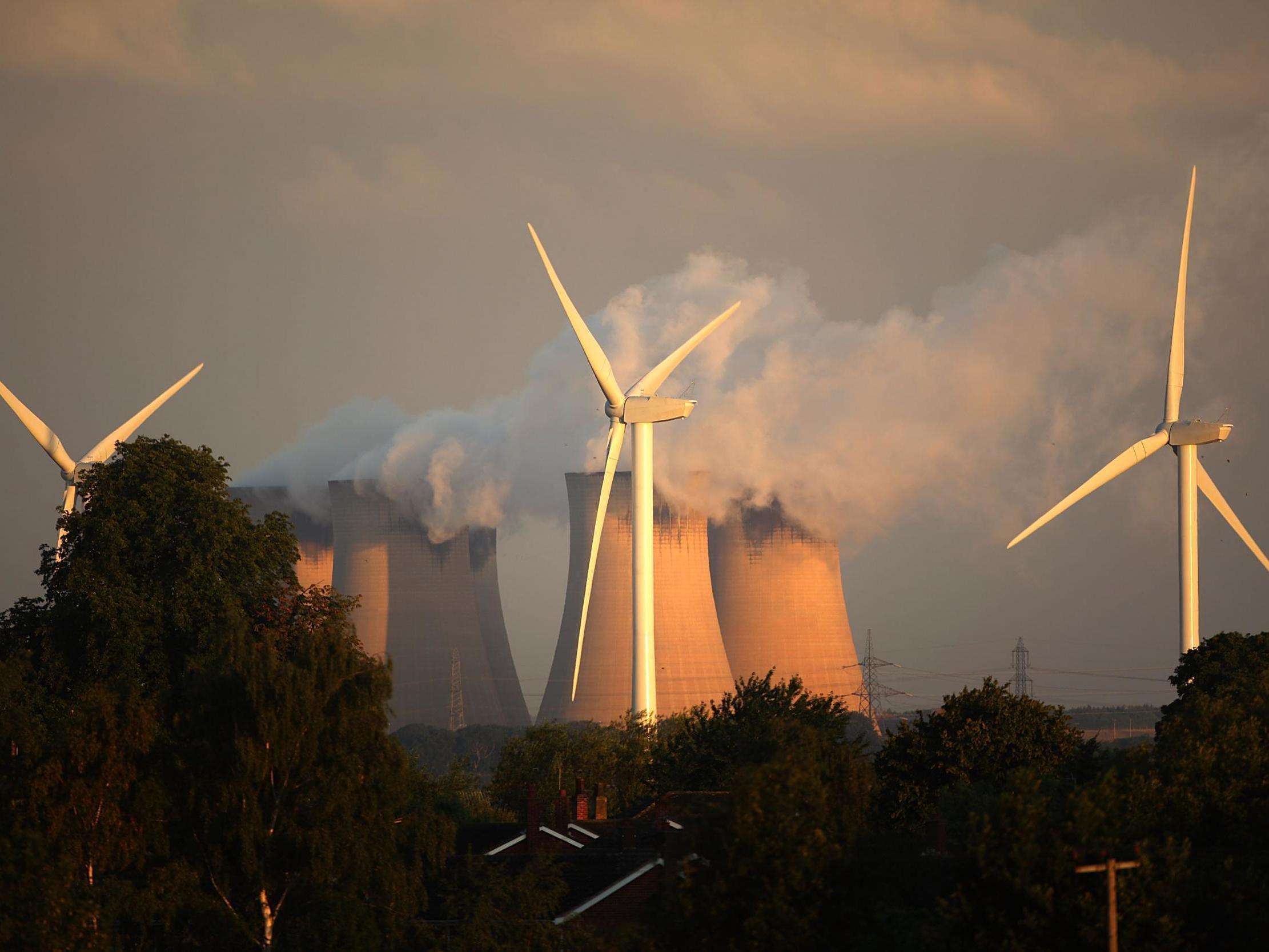Drax: UK's largest coal power station to stop burning coal next year
Drax power station to convert generators to biomass, but the technology's environmental impact is debated

The owner of one of Europe's biggest polluting coal-fired plants has said it will phase out the dirty fuel from its Yorkshire power station in March next year, a major step in Britain's efforts to quit coal.
Drax said that it had reviewed its operations and held discussions with the grid, the regulator and the Government, before deciding to end commercial coal generation at the Selby site.
“Ending the use of coal at Drax is a landmark in our continued efforts to transform the business and become a world-leading carbon negative company by 2030,” said chief executive Will Gardiner.
It is the latest in a line of coal plants that are being closed, leaving just a handful. SSE plans to shut Fiddler's Ferry in Cheshire this March.
Many have decided to shut down before the Government's 2025 deadline when the country must have stopped burning the fuel, as it does not make financial sense to keep the sites going.
Britain has increasingly managed to wane its electricity supply off coal. Last year the country went for more than a fortnight without burning a single lump of the black stuff, thought to be the first time since the 1880s.
At around 8am on Thursday, coal was supplying only 1.9 per cent of the country's energy needs. It has largely been replaced by gas, which provided 50 per cent on Thursday morning, and wind, 17 per cent.
However, coal is still being used for industrial purposes, such as steelmaking.
Drax already burns biomass at the site, a renewable fuel which consists of plant material and animal waste. However its critics say that it causes deforestation, and encourages farmers to grow monocrops just to be burned.
Mr Gardiner said: “By using sustainable biomass we have not only continued generating the secure power millions of homes and businesses rely on, we have also played a significant role in enabling the UK's power system to decarbonise faster than any other in the world.”
He added that the business is still “fully committed” to the regions its operates in “and with the right regulatory and investment framework is well positioned to deliver its plans for Yorkshire and the Humber”.
It came as the company said adjusted profit before tax hit £142 million in 2019, up from £37 million the year before, on revenues of £4.7 billion, up around 11 per cent.
PA
Subscribe to Independent Premium to bookmark this article
Want to bookmark your favourite articles and stories to read or reference later? Start your Independent Premium subscription today.

Join our commenting forum
Join thought-provoking conversations, follow other Independent readers and see their replies